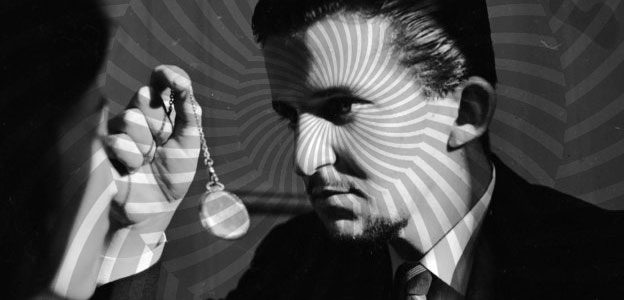When it comes to hypnosis, the reference that many people have is a stage performer who entertains an audience by making his volunteer subjects quack like a duck or do silly things like hopping around the stage on one foot.
While this type of show can be fun to watch, it often misleads people into thinking that hypnosis is similar to the magic that stage magicians do. Therapeutic hypnosis can produce what some may view as magical results, but it takes a whole lot more than sleight of hand to do so.
Hypnotherapy basically involves undergoing counseling sessions along with hypnosis to achieve the goal of altering specific behaviors. Some of the most common reasons that people seek hypnotherapy treatments are to quit smoking, to relieve anxiety around doing a particular activity such as going to the dentist or taking a test and to lose weight.
So, does hypnotherapy work for weight loss?
Usually. In fact, according to research, hypnosis works for about two-thirds of adults.
How Does Hypnotherapy Work?
“Our thoughts become reality” – Check out the video above!
Hypnotherapists are trained counselors who use hypnosis to put clients into a deep state of relaxation while creating in them heightened mental awareness. It is from this state that a person is more apt to absorb suggestions for changing their behavior.
Hypnotherapy works on redirecting the subconscious mind to accept ideas that the conscious mind might normally block out with constant judging, analyzing, and bargaining.
In the case of weight loss, a person may, after hypnosis, have a much easier time saying no to junk foods and consistently making healthier choices.
Another way to approach the problem of “saying no” no junk foods is the accountability provided by diets like Weight Watchers with meetings. (Weight Watchers coupon: Join free!)
How Soon Can I Expect Weight Loss Results?
Using hypnotherapy to achieve weight loss is no different than starting a diet. The biggest indicator of your success will be your level of commitment to the process and your follow-through actions outside of your sessions.
Hypnotic suggestions will make follow-through easier, but there is no magic at work here. Although subconscious conditioning may result in strong urges to exercise regularly or drink lots of water, you still have free will and can choose to ignore your instincts.
That being said, you should expect results, again, as you would with any diet. In the beginning, it may feel like slow going but if you’re consistently keeping up with appointments and responding to the subconscious programming, you’ll soon begin to notice some progress.
Most hypnotherapists ask for at least a six-week commitment, as that is about the minimum amount of time before the changes in a client’s behavior start to produce the desired results.
*New: $50 off code for Nutrisystem
Is Hypnotherapy Dangerous?
The short answer is no.
The longer answer is that stage hypnotists have promoted the idea of hypnosis as “mind control,” where someone else has the power to make a person do things they don’t want to do. This idea, however, is extremely off-base. If anything, hypnotherapy is the opposite of someone controlling your mind.
Therapeutic hypnosis allows you to shut down all the day-to-day chatter of your conscious mind and put hyperfocus on things that, deep down, you really want, such as losing weight.
Instead of just relying on your willpower to avoid eating that enormous brownie, with hypnotic suggestions supporting your thoughts, you can count on your very own powerful subconscious mind to help you stick to your guns.
Ultimately, hypnotherapy has been touted as a safe, effective way to make positive life changes that, naturally become habits. Under the proper guidance, therapeutic hypnosis can provide much longer-lasting results than you might normally be able to achieve on your own.
Related:

